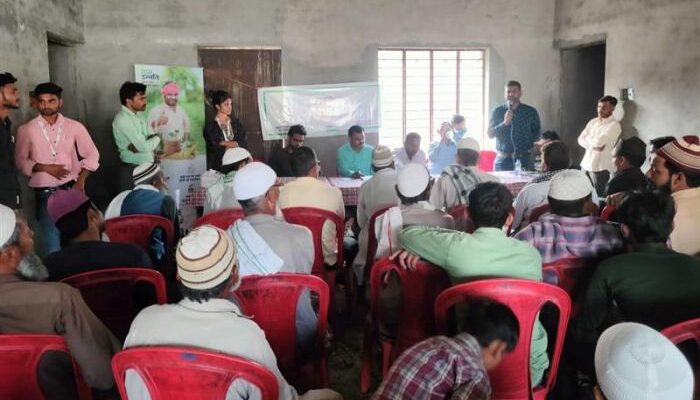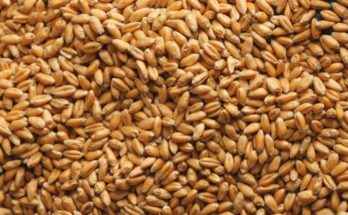With the onset of the spring season, Gram Unnati, one of India’s leading integrated agritech solutions companies, brought together farmers from two districts of Uttar Pradesh and trained them on the latest and scientifically recommended package of practices on spring maize with a focus on pest and disease management. Gram Unnati has been engaged in promoting spring maize as a viable alternative to summer paddy.
Gram Unnati conducted training camps in Bilaspur block of Rampur district and Baheri block of Bareilly district that was attended by more than 100 farmers over a two-day period (March 19th and 20th). The farmers were made aware of a vast range of post-sowing to post-harvest management practices of the crop with a special focus on managing the harmful fall armyworm.
A panel of experts comprising Dr. Roopam Sinha (Scientist, KVK Rampur), Praveen Kumar (Technical Assistant – Agriculture, Rampur), Bhagwat Saran (Subject Matter Specialist – Agriculture, Rampur), Inderpal Singh (Assistant Plan Protection Officer, Baheri, Bareilly) and Brij Pal Singh (Agri-expert, Gram Unnati) engaged with the farmers and also discussed on the benefits of using maize as a fodder crop.
Speaking at the training session, Aneesh Jain, CEO and Founder, Gram Unnati, said, “We were overwhelmed by the active participation of farmers from the two districts of Uttar Pradesh. Over the last one year, we have been working closely with the government along with multiple stakeholders to convince farmers of this region to shift to more climate-compatible crops that are less water-intensive and also bring in higher returns. Its multiple utilities as ‘food’, ‘fodder’ and ‘feed’ also help in de-risking farmers against low demand situations.”
You may also like to read: PMFME scheme to support setting up of 2 lakh micro food processing enterprises
The farmers of Uttar Pradesh (Rampur, Bareilly, and Pilibhit) and adjoining areas of Udham Singh Nagar traditionally take a short-duration summer paddy crop after their rabi harvest and before Kharif sowing. But Gram Unnati has been working closely with these farmers to shift them to spring maize.
Gram Unnati undertook an 18-month pilot project during which the organisation worked closely with multiple stakeholders including the district administration, local maize processors, input companies and most importantly select progressive farmers to promote spring maize as a substitute for summer paddy in the region. The programme was successful in shifting 5,000 acres of land to spring maize, resulting in water savings of approximately 4,000 litres per acre.
You may also like to read: SLCM’s process management system ‘Agri Reach AI ML QC application’ gets NABL accreditation
Lauding the efforts of Gram Unnati, Dr. Anuj Bansal, Subject Matter Specialist, Scientist, KVK Rampur, “Some time back, Gram Unnati, based on research and some pilot project, found spring maize to be a reasonably remunerative substitute for summer paddy. This has worked wonders in this region and a large number of farmers have shifted to this crop during this short period. We were extremely delighted to see the active participation of farmers during the sessions, especially on early identification and management of fall armyworm.”
In view of a favourable outcome and positive response from the beneficiaries, Gram Unnati has continued to scale up its intervention during the current season. Many farmers who participated in the session claimed that they have recently switched to spring maize from summer paddy. Not only has this reduced their dependency on groundwater resources, but it has also contributed to making agriculture more remunerative for the farmers and more sustainable for the environment. Thus, leading to a win-win situation for all.





